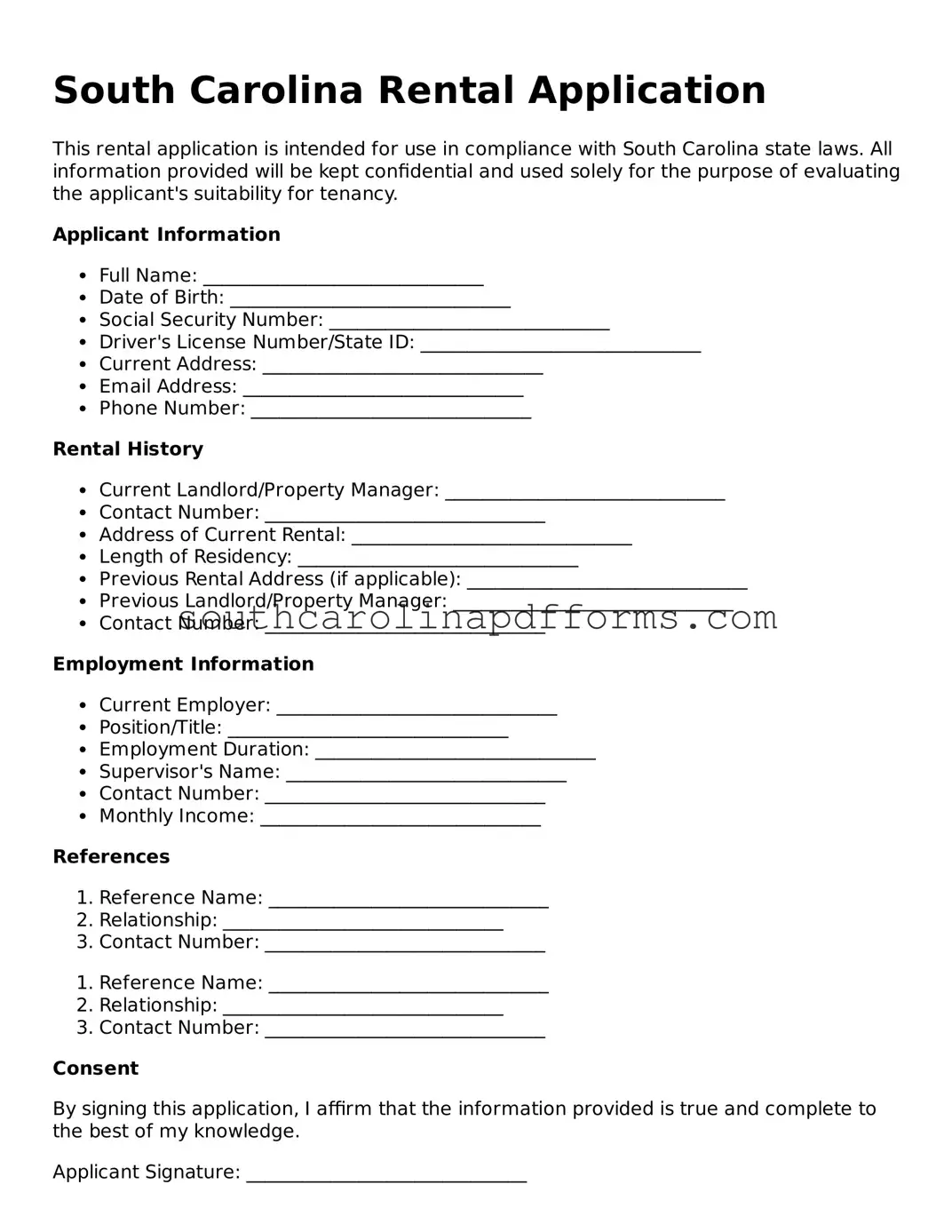Attorney-Approved South Carolina Rental Application Document
The South Carolina Rental Application form is a crucial document used by landlords to screen potential tenants before entering a lease agreement. This form collects essential information about the applicant, including personal details, rental history, and financial background. Understanding its components can help both landlords and tenants navigate the rental process more smoothly.
Access Rental Application Here

Attorney-Approved South Carolina Rental Application Document
Access Rental Application Here
Finish the form and move forward
Edit, save, and finish Rental Application online.
Access Rental Application Here
or
▼ PDF Form
